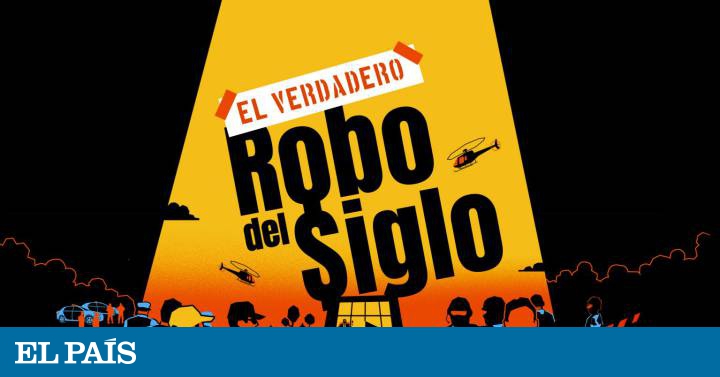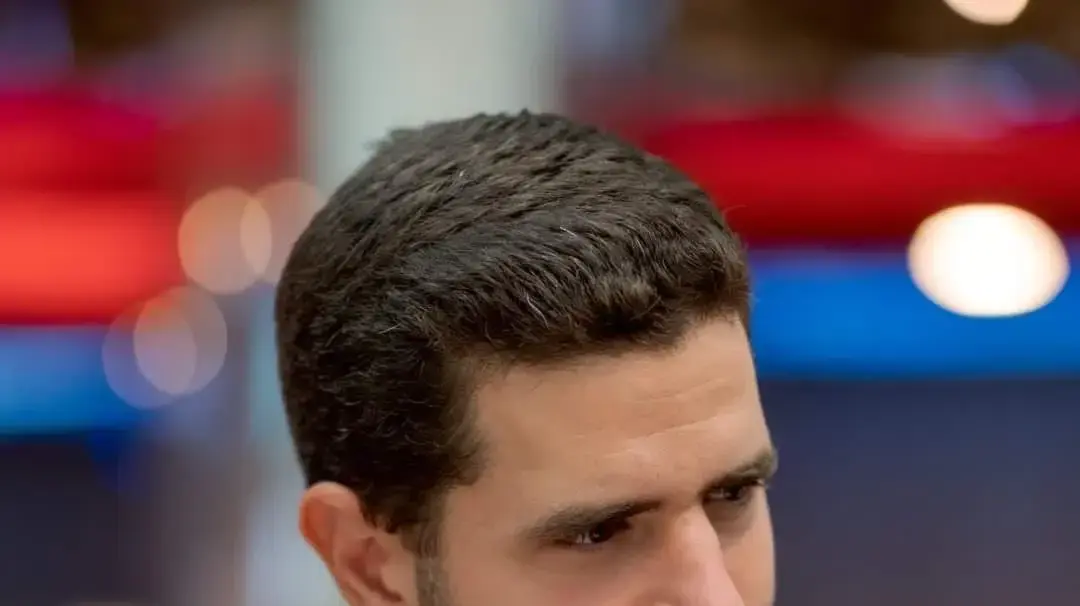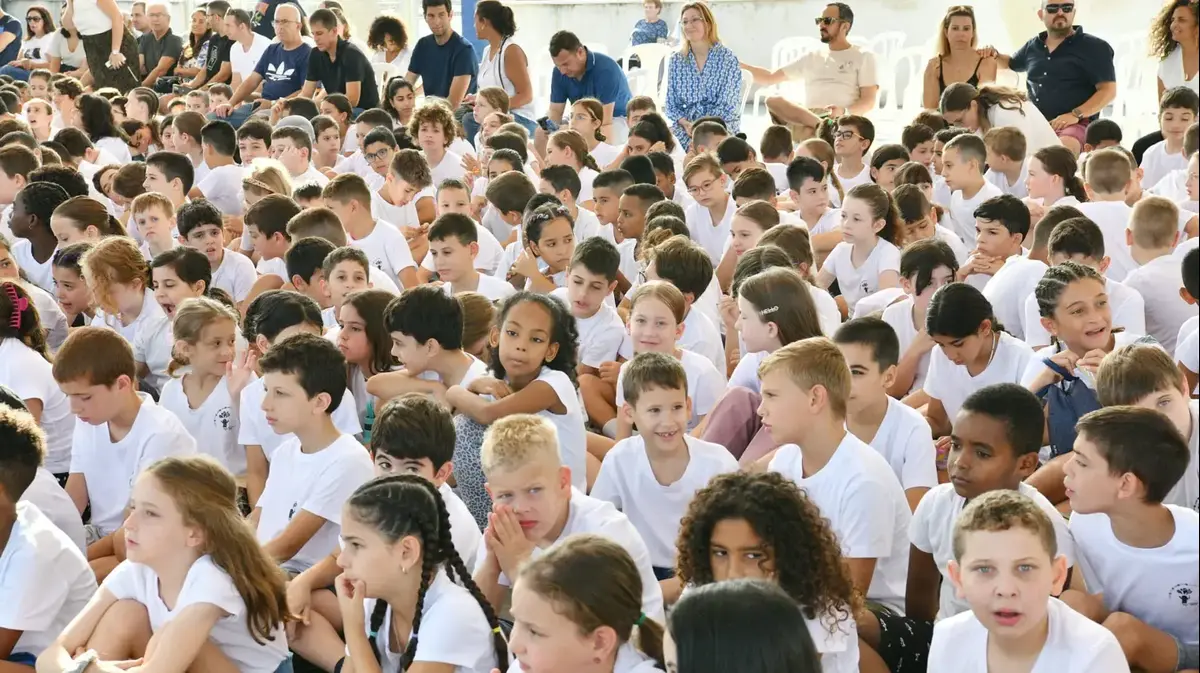Martina Castro
was co-founder of Radio Ambulante and for three years she has run her own production company, Adonde Media, in which she has achieved enormous success with
podcasts such
as
TED en Español
and
Duolingo
.
Now, the team he leads is launching an original series that tells one of the most fascinating episodes in the history of Argentina.
It's about
The true robbery of the century
, the
true-crime
that tells what happened on January 13, 2006, when a group of armed men entered the branch of Banco Río de Acassuso, in Argentina.
The police quickly arrive, surround them and the thieves remain entrenched inside the bank with 23 hostages.
At first glance it appeared to be an express robbery gone wrong, as there were so many others at that time.
No one imagined that one of the most incredible robberies in history was taking place inside that bank.
Q:
How important is it for Adonde Media to launch into the world of originals and do it autonomously, multi-distributed and without the need to sell it to a platform?
A:
We have just completed three years as a producer and we have had the opportunity to work on very exciting projects with fantastic clients.
We have put our name on these projects with great pride, because they are all of great quality and have been remarkably successful.
But in a way, in these projects we are always channeling the vision of our clients.
I wanted to give the team a chance to jump into the water with complete freedom to create something that can demonstrate what we are capable of.
I also think it is important for the industry to contribute ambitious projects, explore new genres, and hopefully be able to expand the
Spanish-speaking
podcast
audience
.
Q:
Why have you chosen
true-crime
as the genre to launch with and what are your most immediate references in this case: Wondery, Parcast?
A:
It was a bit by chance because
Duolingo
wanted to produce a season of the
Duolingo Spanish Podcast
that was a
true-crime
, that is, real crime, events, police.
And Mariano Pagella had long proposed this idea to me to make a
podcast
about theft, but we hadn't quite decided to produce it alone.
So we took this opportunity to propose a collaboration to
Duolingo
and produce the bilingual version, for them, and the Spanish version simultaneously.
But on the other hand, I am very happy to be launching a
true-crime
after finding that the genre did not end up being very popular for Spanish-speaking audiences who were surveyed for Edison Research's Latino Listener Report in the United States last year.
Q:
You wanted to turn it around, didn't you?
A:
That's it.
Some producers might have taken this as a sign that a
true-crime
was not worth producing
, but I thought otherwise.
A being so popular with other audiences, my hypothesis is that there is insufficient
podcast
of
true-crime
in Spanish.
I am convinced that our audience needs to hear more, and more with the level of production that he knew we could offer.
Also, unlike what other
true-crime
producers have done
, this one is not about a woman mutilated by a madman.
Yes, there is a mystery and it is a police plot, but in the end, despite having many victims of the robbery, nobody dies and one learns a lot throughout the series about Argentine society at that time.
That's the kind of
true-crime
that I like to produce.
Q:
Mariano Pagella is the narrator of this true story that happened in 2006 and that seems to have inspired the successful Spanish series
La Casa de Papel
on Netflix with that enigmatic professor who plans everything.
Could you without revealing too much tell us what its plot consists of for those who are not familiar with the story?
A:
The story is really fascinating, and it took a lot to put together because we had to do a lot of checking on a journalistic level.
The plot is apparently simple.
It's 2006, summer in Buenos Aires.
Some thieves break into a bank and take hostages.
The police surround the bank, and when they finally enter, the robbers have vanished.
A huge investigation is opened, and we speak with police and prosecutors, and it is discovered that what looked like a hostage-taking was a perfectly planned robbery, with many twists and turns.
The thieves managed to leave with a loot of millions.
And that comes just when in Argentina there is great indignation with the banks and with the police.
It really is fascinating, and I don't want to reveal too many details.
And yes, as you were saying, two of the authors of the robbery have said, on more than one occasion, that they believe that
La Casa de Papel
was inspired by the robbery, which took many elements from its operation.
Q:
The robbery happened in Argentina: is it a story that can be understood in all its dimensions —political and cultural context— if you are not Argentine?
A:
That is the idea.
We were very careful when editing the text so that you can understand everything even if you are not from Argentina, so some Argentine terms such as "toil" or "impose" are not explained but other terms are explained, such as "gray hair", which is used by several interviewees to refer to the policemen, or “jets”, who are the thieves, and we also
explained the social and political context in which the robbery occurred, so that anyone can appreciate the meaning of this robbery at that precise moment in the history of the country and Latin America.
Q:
Tell me a little more about the series' sound design.
How has the production work been?
A: It
may seem a bit risky, but we decided to make the experience of listening to the series as cinematic as possible.
Being a robbery that happened 15 years ago, when there was no YouTube or Facebook, there is not much footage from that time, so we decided to recreate scenes with a very detailed sound design.
I want to give a lot of credit to our sound designer Antonio Romero, who has a background in film sound design, and it shows in the series.
The original music, Mariano's storytelling style ... everything was thought to increase the tension and also to make the experience of listening to the series a fun experience.
It's not going to look like a radio documentary at all, that I can assure you.
But
there is a lot of journalism behind it, a lot of investigation and even details of the theft that have never been published before are revealed, and I hope that is not lost throughout the series.
Graph of episode 1.
Q:
Some of the main protagonists —Miguel Sileo, Beto de la Torre, among others— give their testimony on the
podcast
.
I don't think they've ever talked so openly about the event before, right?
A:
Although some of them have given interviews in the past, what is really new and special about this
podcast
is that they come together in a choral narration, with different points of view that complement each other.
I don't think this fascinating story has ever been told in this way.
In that sense, yes, there are protagonists like the prosecutor Miguel Sileo who have not provided this level of detail before, and who help us to know data from the investigation that were not known before.
And we have testimonies from witnesses, such as security guard Walter Orlando Serrano, who never spoke before, and who was the one who set off the alarms from the bunker.
And, of course, it is also an important part to have one of the thieves, who speaks so frankly of their participation.
Q:
Once you have released this first original, are you thinking of releasing new ones and towards what genres are you heading?
A:
Yes!
We have another that we will be launching in March of interviews produced on entrepreneurship in Latin America and another
podcast
that is more towards sound art, that explores the limits of languages and that we want to launch in the third quarter.
We still have several projects in the development phase, but in all of them
we are looking to be daring and experiment with something;
if it is not with the format, it will be with the target audience, or with the business model
.
Q:
Finally, Martina, the
podcasting
industry
is increasingly turbulent and Amazon's entry is expected to be explosive: where do you think we will go in 2021 and how positive do you see the year for the
Spanish
podcast
?
A:
I start with the last and I tell you that I see it very positive for the
podcast
in Spanish.
There are many companies, large and small, that are investing right now in our corner of the industry.
They appreciate the potential of our audiences, and what little we've seen of audience studies already shows that there is a lot of hunger for the
podcast
among those who have discovered it.
I have seen brutal change from the years I was with my Radio Ambulante co-founders in 2012 and 2013, putting together the
podcast
with very little resources but totally confident that there was an audience for the ambitious and diverse stories we wanted to produce.
That audience is now growing impressively, and we really need more information about it.
I hope this year we start to see more studies, more experimentation, and also more opportunities for training.
At Where we know that as we are producing high-quality content, we are also training the next generation of storytellers in audio
.
Those creators are not going to appear out of nowhere.
So I hope that the big players in the sector start investing in that training as well.
But in general, I see the entry of large producers as positive.
I hope that smaller production companies like we are where we can take advantage of the opportunities to work with clients like Amazon and Spotify to continue pushing the industry and the medium forward for the future.









